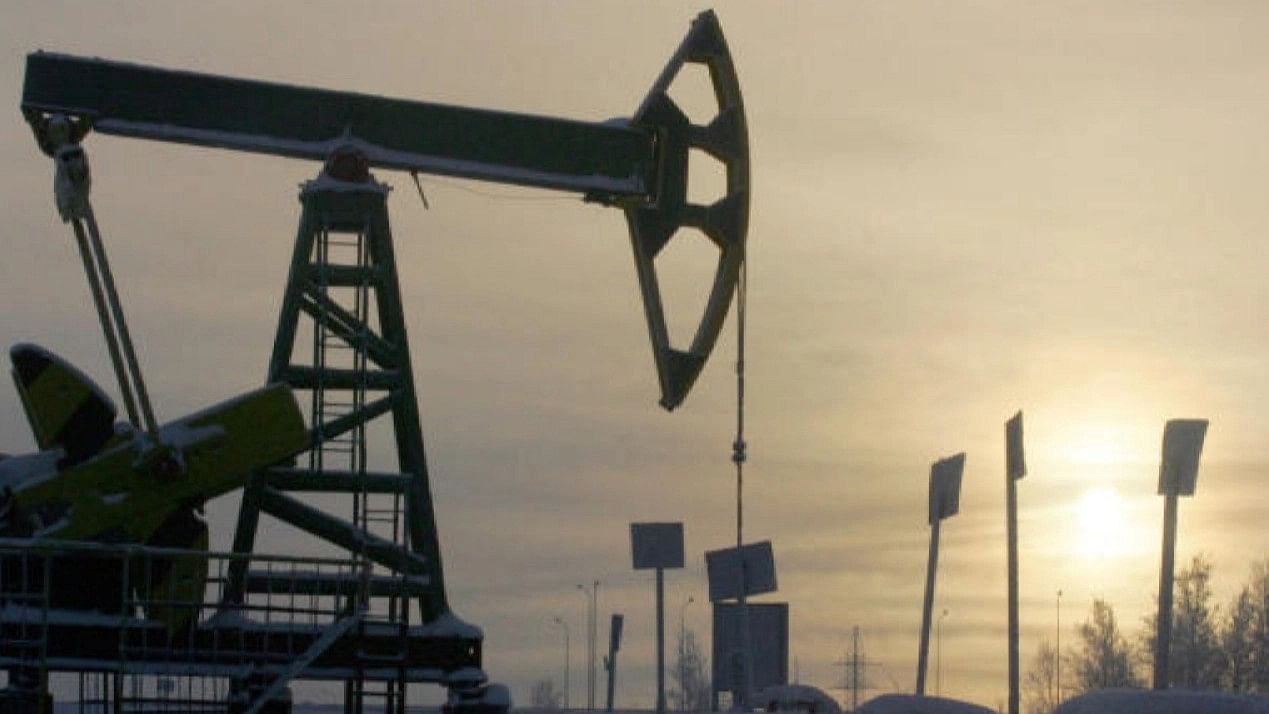
Representative image of oil extraction
Credit: Reuters File Photo
New Delhi: State-controlled Oil and Natural Gas Corporation (ONGC) has started oil production from its much-delayed flagship deep-sea project in Krishna Godavari basin in Bay of Bengal, helping reverse years of decline in output, the company said.
ONGC has started producing from the Cluster-2 project in KG-DWN-98/2 block and will slowly ramp up output. Oil Minister Hardeep Singh Puri said "first oil production commences from complex and difficult" block.
He did not indicate the current output but said "production is expected to be 45,000 barrels per day and over 10 million standard cubic metres per day of gas".
Cluster-2 oil production should have begun by November 2021, but was delayed because of the Covid pandemic.
ONGC has hired floating vessel Armada Sterling-V, owned 70 per cent by SPOG (Shapoorji Pallonji Oil & Gas) and 30 per cent by Malaysia's Bumi Armada, for producing oil from below seabed.
The FPSO (floating production, storage and offloading vessel), Armada Sterling-V, has been waiting to receive oil since January 2, 2023, after she was hooked up on December 27, 2022.
ONGC previously set May 2023 as the first Cluster-2 oil deadline, extended to August 2023, September 2023, October 2023 and finally December 2023.
ONGC's KG-DWN-98/2 or KG-D5 block, which sits next to Reliance Industries' KG-D6 block in the KG basin, has a number of discoveries that have been clubbed into clusters. It is situated offshore the Godavari river delta in the Bay of Bengal.
It is located 35 kilometres off the coast of Andhra Pradesh in water depths ranging from 300-3,200 metres. The discoveries in the block are divided into three clusters— Cluster 1, 2 and 3.
Cluster 2 is being put to production first, for which the field is divided into two blocks namely 2A and 2B, which as per the original investment decision were expected to produce 23.52 million metric tonnes of oil and 50.70 billion cubic metres (bcm) of gas over the life of the field.
Cluster 2A was estimated to contain reserves of 94.26 million tonnes of crude oil and 21.75 bcm of associated gas, while Cluster 2B is estimated to host 51.98 bcm of gas reserves.
Cluster 2A was anticipated to produce 77,305 barrels of oil per day (bopd) and associated gas at a rate of 3.81 million metric standard cubic metres per day (mmscmd) over 15 years. Cluster 2B is expected to produce free gas of 12.75 mmscmd from eight wells and has a 16-year life. But now the output estimate is lower— 45,000 bpd of oil and associated gas up to 2.5 mmscmd from Cluster 2A and around 9 mmscmd from Cluster 2B.